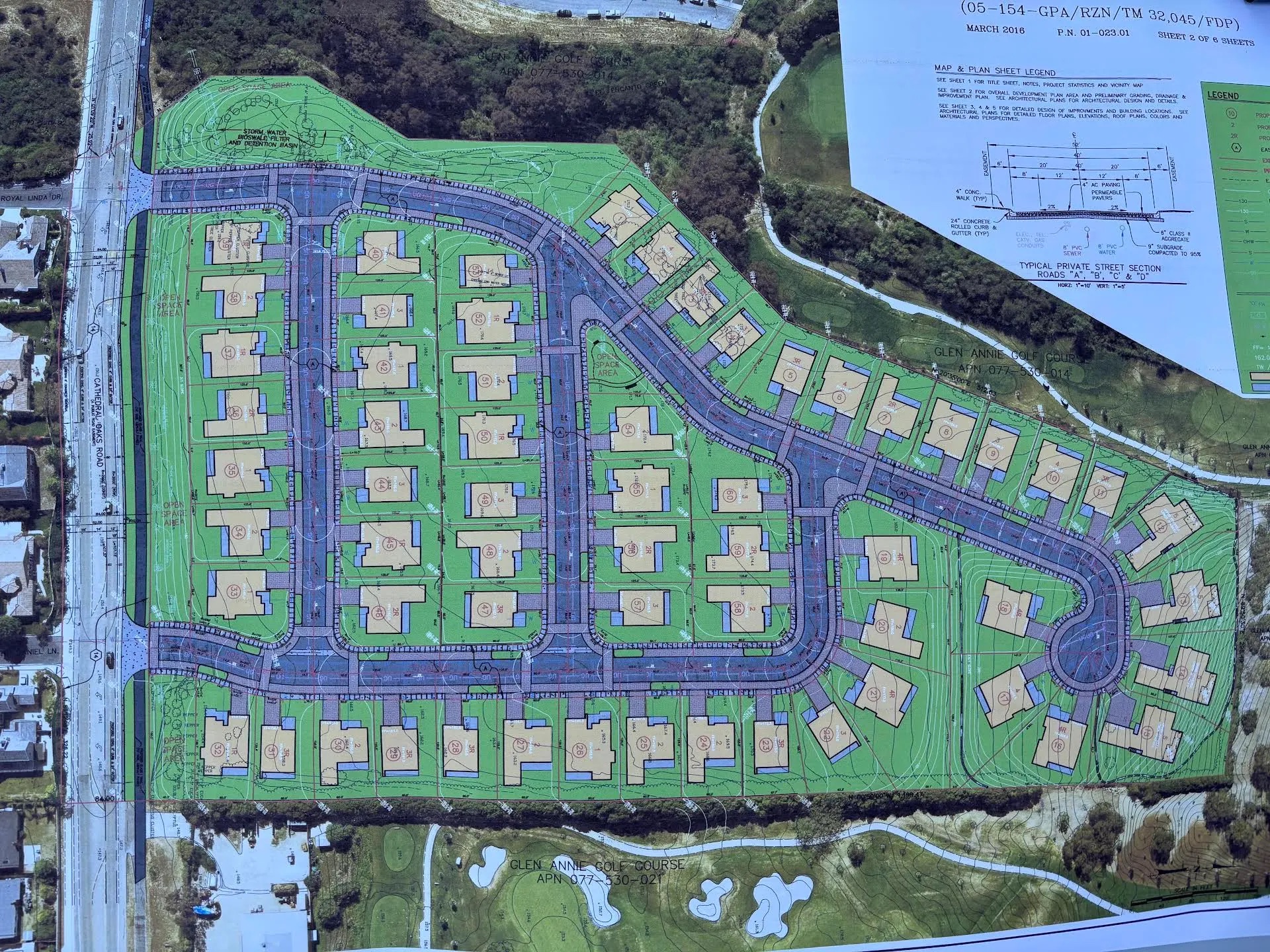California Attorney General Dings Goleta in Shelby Development Controversy
State Asserts City Illegally 'Returned' a Completed Preliminary Application for Low-Income Homes

The court case between the Shelby property owners and the City of Goleta is a battle over the development of a 12-acre parcel of open space above Dos Pueblos High School and next door to Glen Annie Golf Club — a seriously congested intersection during morning and afternoon rush hours. After the city questioned a new application in the development of 56 single-family homes — 13 of them low-income affordable — California’s Attorney General filed a friend-of-the-court brief on Friday asserting that the city must accept Shelby’s preliminary application.
Shelby’s owners filed the application in 2023 under the rules of Senate Bill 330, or 2019’s Housing Crisis Act, adding the low-income homes. As long as 20 percent of a project are homes for very low- to moderate-income households, SB 330 “freezes” the planning rules in place at the time of the application, and also lays out a timeframe in which a city or county must process completed applications.
In early 2023, Goleta was out of compliance with the state Housing Element, a state rule that requires municipalities to zone for an assigned amount of housing. This meant the Shelby developers were allowed to file under SB 330.
Shelby’s ownership dates back to 1978, and the property already had a vested right in a tract map from 2011. Goleta “returned” the application, asking if Shelby wanted to keep the development rights from 2011 or use the ones conferred in 2023 under SB 330. Shelby filed suit in January 2024, arguing, among other things, that the application was illegally rejected.
Over the past couple years, Attorney General Rob Bonta’s office has quickly filed against cities like Huntington Beach and La Cañada Flintridge for refusing to comply with Housing Element requirements and for raising roadblocks to affordable housing. His office acted equally quickly and forcefully in the case against Goleta, saying Goleta violated SB 330 and was not allowed to disapprove certain low-income housing projects.
The amicus brief states: “The HAA [Housing Accountability Act] and SB 330 were enacted and amended to provide current and future Californians a fighting chance amidst a housing shortage of epic proportions. The City’s ‘return’ of Shelby’s SB 330 preliminary application undermines that goal. For these laws to work, courts — particularly at the local trial court level — must compel cities like Goleta to follow the law. The Attorney General respectfully requests that this Court do so, and grant Shelby’s Motion for Judgment in its entirety.”
In the amicus brief, the state agrees with Shelby’s contentions that the city failed to make findings under the Housing Accountability Act that would allow it to “return” the completed preliminary application. The state also contends there is no “Hobson’s choice” between the vested tract map or the provisions of SB 330. If the applicant fulfilled the 17 criteria under SB 330, the city must accept it ministerially. The amicus brief also notes, “To be sure, it may seem odd that a housing development applicant would choose to submit a preliminary application when a pre-existing development application has already been ‘deemed complete.’ But the applicant’s motivation for doing so is not for local agencies to question …. ”
Building homes on open space and agricultural lands is a tactic Goleta prefers to avoid. Its citizens just voted to renew for another 20 years a law that keeps large agricultural parcels undeveloped, unless approved by the people in a vote, while aggravation grows over the County of Santa Barbara’s rezoning of farmland just outside the city’s borders for thousands of homes under the Housing Element. For its own Housing Element, Goleta had first chosen to include residential zoning for homes in mixed-use business districts, but the state would not accept the plan, saying the city had no track record and had to produce willing property owners.
The bulk of the South Coast’s housing to be built in the past decade has gone up in Goleta, including affordable homes, especially after the City Council approved an inclusionary housing ordinance in 2019 that requires a development to have 15-20 percent very low- to moderate-income homes. The developments approved since then include the Villages at Los Carneros, where 70 units were built by People’s Self-Help Housing. Heritage Ridge across the road will add 102 very low and low-income apartments. A converted motel at Fairview brought 59 extremely low-income persons in off the streets and into studios on a permanent basis.
The Housing Accountability Act and SB 330 require a streamlined process. If an environmental review is necessary, it is to be approved or denied within 90 days of being certified, or within 60 days of a negative declaration. In addition to the “freeze” on residential zoning standards, only five hearings may be held, and design standards must be objective.
Questions to the city brought the response that it does not comment on ongoing litigation. Shelby’s attorneys were unavailable when called. The Motion for Judgment on the Pleadings is currently set to be heard on January 15, 2025, in Judge Thomas Anderle’s courtroom.
